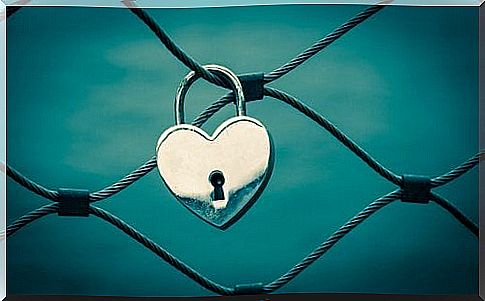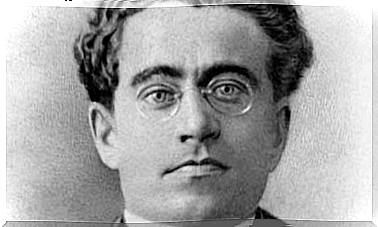4 Steps To Eliminate Emotional Dependency

When our happiness is exclusively dependent on one person, suffering is inevitable. Unhealthy and obsessive attachment is the biggest trigger for discomfort, boycotts and loss of self-esteem. Therefore, we must be clear: it is necessary to eliminate emotional dependence. an effective step must be taken to be autonomous and emotionally solvent in affective matters.
Emotional dependence has a lot to do with the way in which a person is undervalued or devalued (case, for example, of women who are victims of gender violence). Likewise, we cannot ignore an almost undeniable fact. We have all done it at one time or another. We confuse love with attachment and find ourselves involved in unreciprocated bonds. Even to the point of leaving our well-being at the mercy of a third party.
Let us learn, therefore, what internal steps or processes we must put into practice to enjoy healthier relationships. In which emotional dependence is not the one that guides them.

1. How to eliminate affective dependence
A first aspect that we must consider is the following: emotional dependence extends beyond relationships. It is also usually evidenced with other social ties: with friends, colleagues, family and people in the environment. In general, it is a situation that can be extended to almost any area.
Often times, it can take long periods of time for us to realize it. We speak of months and even many years. Why do we find out so late? Because during that journey, we have often lost our emotional self-sufficiency. We are subordinate to someone to the point of not thinking or acting for ourselves.
Intuiting this psychological reality will undoubtedly be the first step to proceed to eliminate emotional dependence. Consider the following:
How are the dependent people?
To evaluate if we have the tendency to establish dependency relationships with others, we can look at the following characteristics:
- S u happiness focuses on one person: not enjoy anything other than being who loves and appreciates.
- Your joy depends on how others treat you.
- Avoid at all costs to be contrary to avoid confrontations.
- He puts the desire of others before his own.
- You are only okay with yourself when you perceive that you are loved.
- Fear of losing that or those people that you love or appreciate so much.
- Easily fall for emotional blackmail.
- He prefers to suffer rather than leave the person with whom he maintains that relationship.
- Feelings of guilt : if the other party does not feel happy or satisfied, the dependent suffers discomfort and guilt.
- He wants to be in control of the other person’s life to be sure that he will not lose it: he becomes a kind of spy to even follow the conversations he has with other people and stops living his life to follow the other’s.
- There is a clear trend towards social isolation: that is, you just want to be with that person.
- The relationship generates anxiety: the person is never happy because they want more and, above all, they fear that they will leave them, which would be a catastrophe because they cannot imagine life without that person.
We would like to have someone special in our life. What differentiates a non-dependent person is that when they are alone they can have moments of melancholy, but that does not stop them from continuing to enjoy other facets of their life.

2. Make a list of things that harm us and satisfy us
Once the existence of the problem has already been recognized and the need to eliminate emotional dependence is convinced, we must take a second step. We will make a list of things that we have come to do for someone and that in one way or another, have harmed us. We are not referring to the actions that we have done for the other based on love; but in what we have done even knowing that it was not what we wanted, desired or benefited us at that moment.
Keep in mind that a dependent person does not look at their personal well-being, but on that of the other person so as not to lose it.
What things did the other person have that hurt you? What have you done for the other that hurt you? Have you put aside friends, family, activities, studies, personal development, etc …? Have they treated you with the respect you deserve?
In these cases it is important to be aware of the suffering we have experienced. Everything left or relegated has a cost. All time invested is quality of life lost. Let’s reflect on it.
3. Strengthen self-esteem to eliminate emotional dependence
As we have seen, the main factor in any emotional dependence is low self-esteem. There are many options to be able to reinforce it. The question is to give it the importance it deserves and to recover that indispensable psychological tendon.
Here are some tips:
- Start deciding for yourself.
- Remember your past achievements, your successes.
- Do not compare yourself, do not seek approval from others.
- Start new projects, meet new people. Experiment, get excited.
- Work on your assertiveness. Say “yes” without fear and “no” without guilt.
- Take responsibility for your life and your happiness.
- Get to know yourself, explore your needs and wants.
- Heal your wounds.

4. Learn to be alone
Life is more beautiful with love, but it comes healthily when we feel good about ourselves. We cannot have a healthy relationship if we have not developed as people before. Therefore, to eliminate emotional dependence, it is necessary to learn to be alone. Enjoy ourselves. Understand us, understand us. Delve into how we are, what we want and what we don’t.
We all would like to have an ideal partner, people to love. But “need” is one thing and “want” is quite another. When we need it it doesn’t work. When we have to have someone by our side to feel good, it is very likely that the relationship will not develop in a healthy way.
One must learn to enjoy life without a partner. There are plenty of things to do, like discovering and developing our skills, carving out our future, spending time on hobbies, making friends with good people, traveling, enjoying the little things. And above all, take care of ourselves and love ourselves as we deserve.
Eliminating emotional dependence is preserving our self-sufficiency, it is investing in dignity and well-being.









